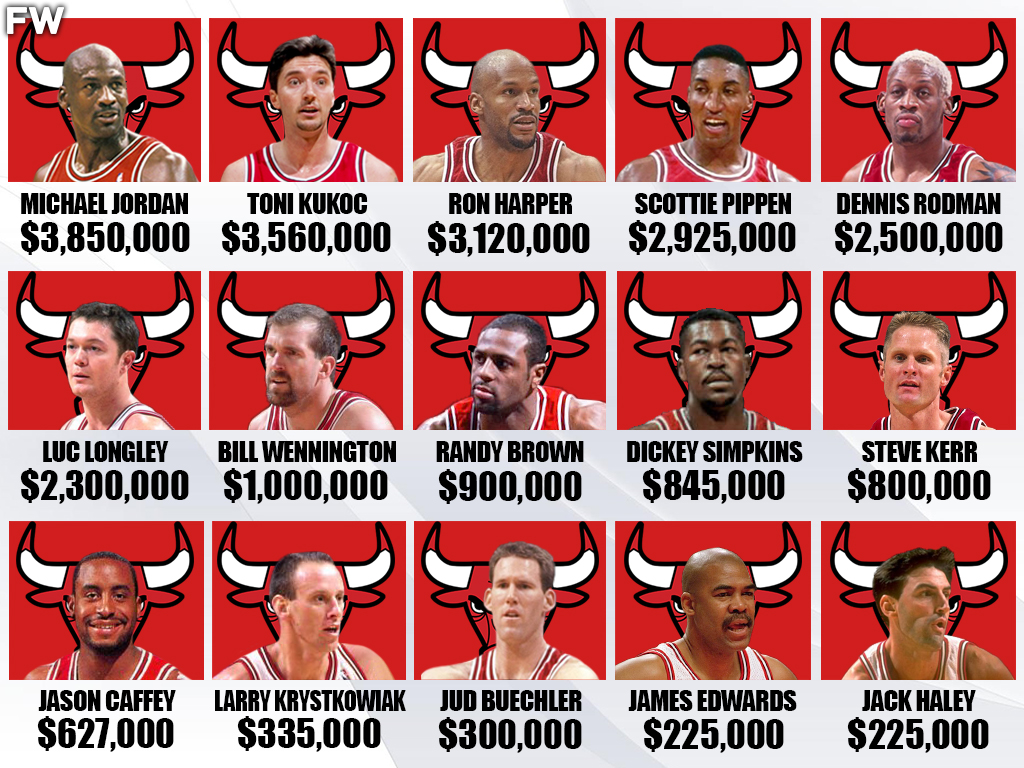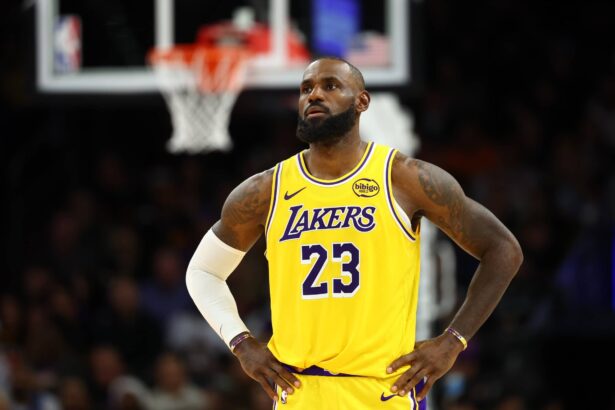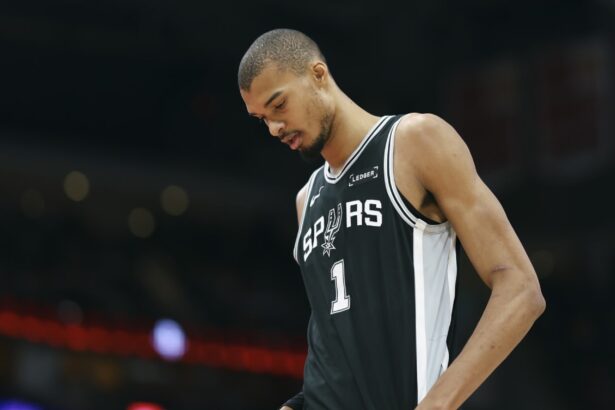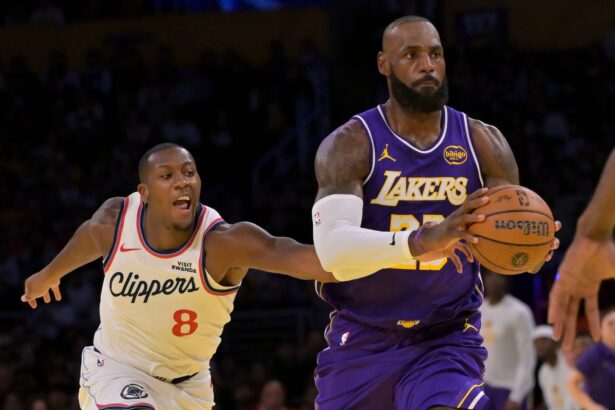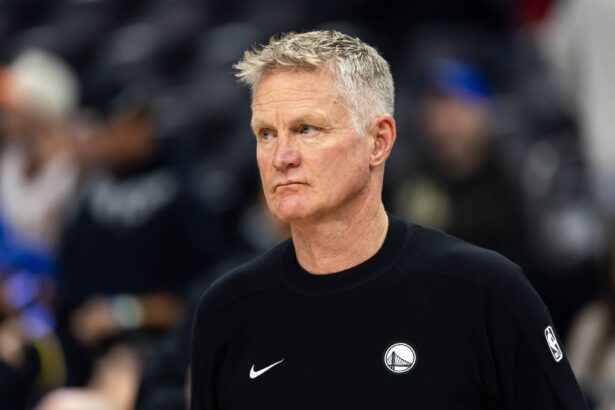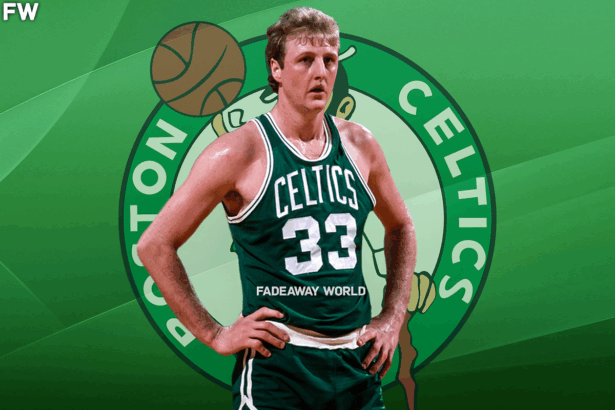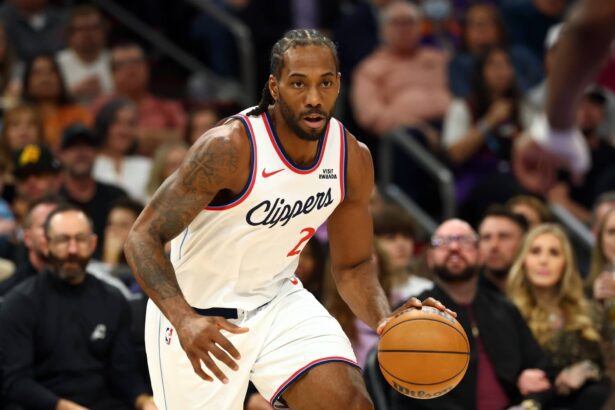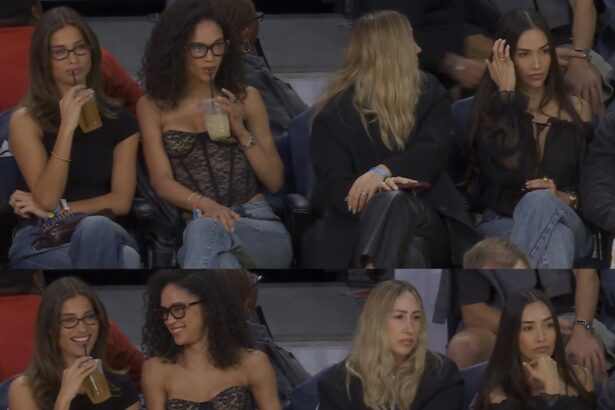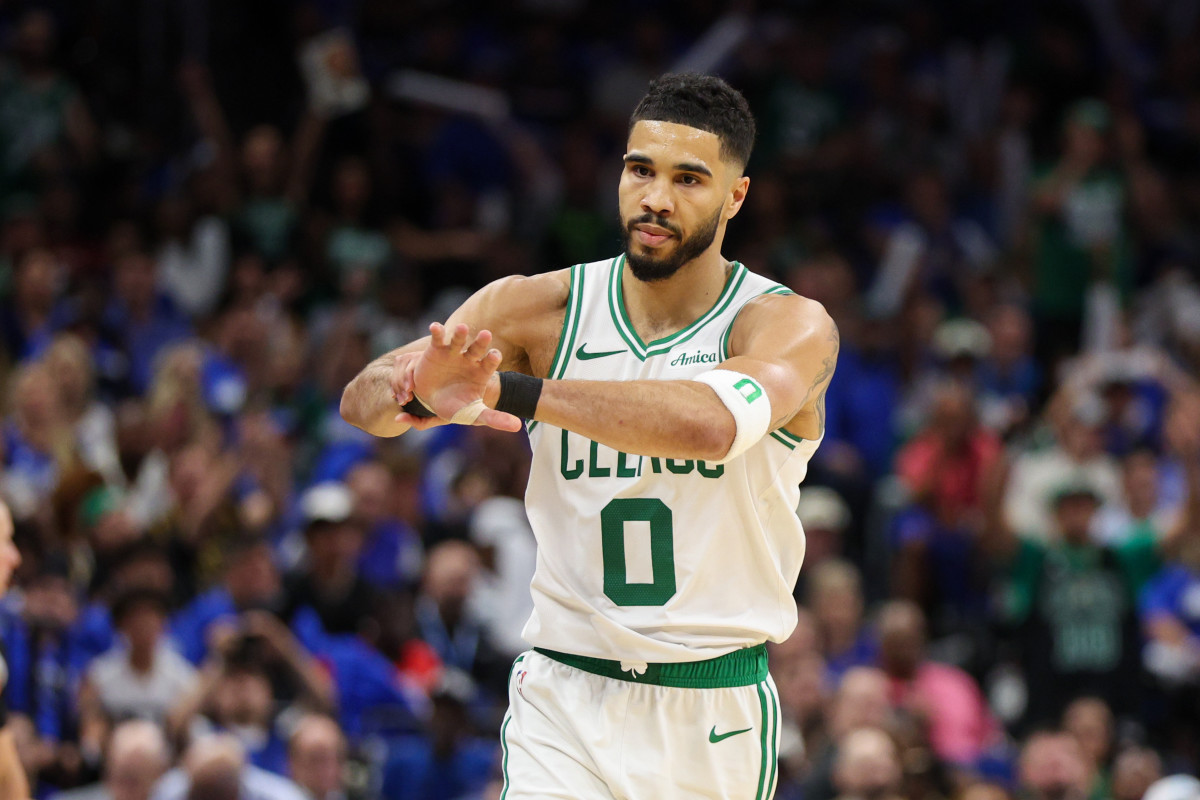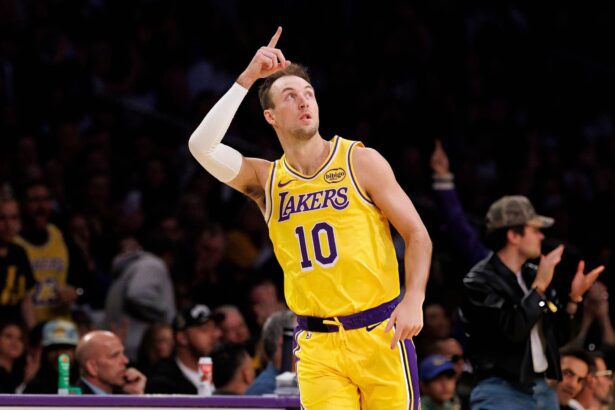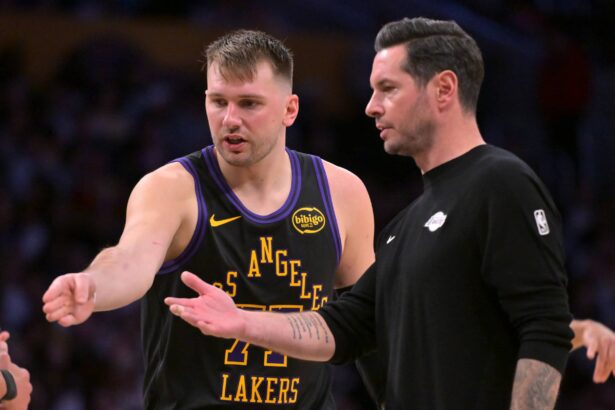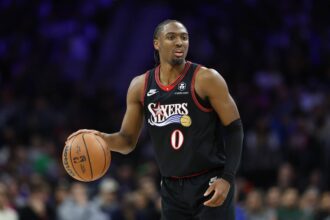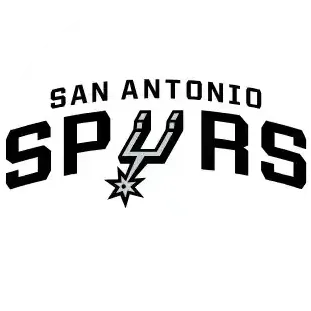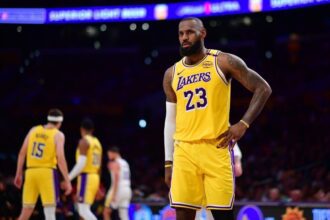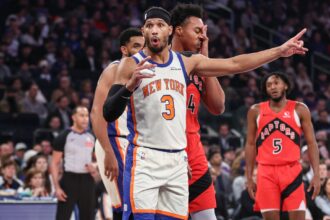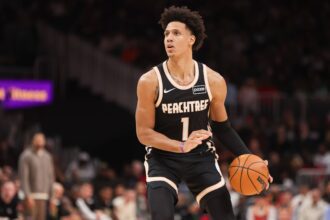The Bulls went into the season with a few question marks. It was the first full season for Michael Jordan since retiring the first time. The team acquired controversial All-Star forward and rebounding champion Dennis Rodman. Those concerns were quickly gone when the Bulls kept winning. The team won and then won some more until they set an NBA record for wins in a season with a 72-10 season. This team is widely regarded as the greatest game ever, as the Bulls won the NBA championship and led the league in offensive and defensive rating.
The Warriors have since passed the team’s record for wins, but this team will never be forgotten. It was perfectly constructed. The Bulls won 37 straight games at home and went undefeated at home. For a team like this, you would expect this team to look like the Warriors today. Instead, the Bulls owned the 15th-ranked payroll in the league this season with a combined payroll of $23.5 million. The Knicks led the league at $43 million.
Jerry Krause knew how to work the numbers. Let’s look at the 1995-96 salaries from the record-setting Bulls.
Jack Haley – $225,000
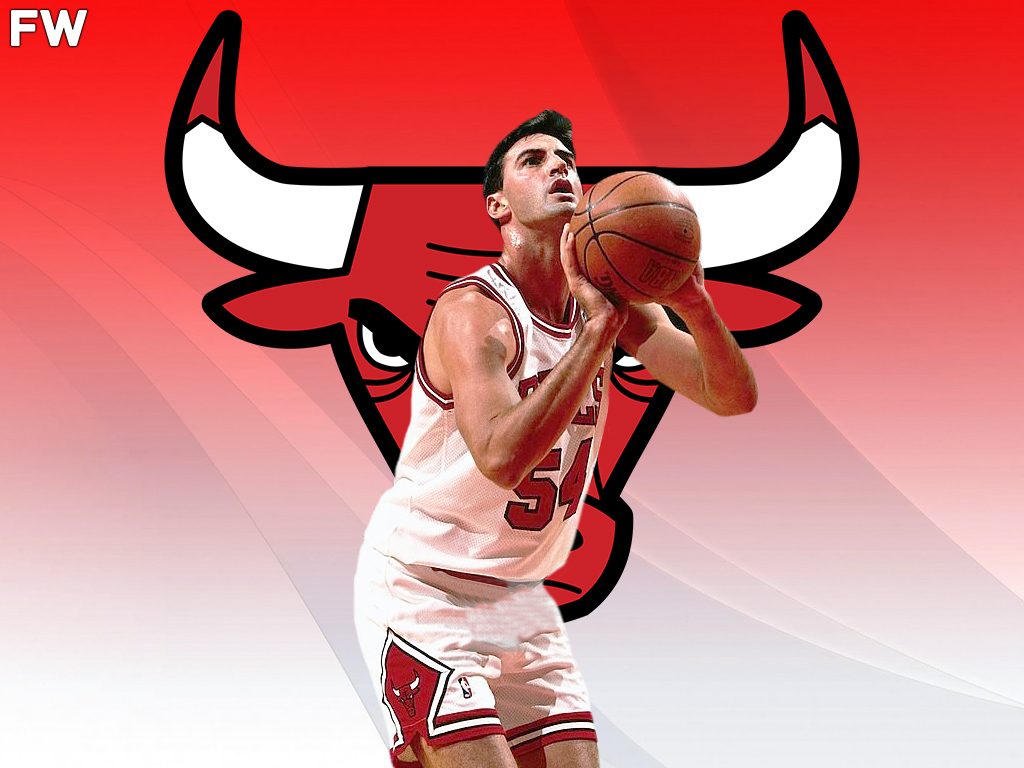
2022-23 Equivalent: $437,180
1995-96 Season Stats: 5.0 PPG, 2.0 RPG, 0.0 APG, 0.0 SPG, 0.0 BPG
1995-96 Playoff Stats: 0.0 PPG, 0.0 RPG, 0.0 APG, 0.0 SPG, 0.0 BPG
Haley was drafted with the No. 79 overall pick in the fourth round of the 1987 draft. He did not make his NBA debut until 1988. He left the Bulls in 1989 and then traveled around to the Nets, Lakers, AEK Athens, and Spurs, and then made a return to the Bulls in 1995. He missed most of the season due to knee tendonitis in his left knee.
While Haley did not make an appearance in the playoffs, Haley was given credit for being an enthusiastic member of the bench. He could be seen cheering for his teammates all season long. His spark may not have been on the court but could be seen elsewhere.
James Edwards – $225,000
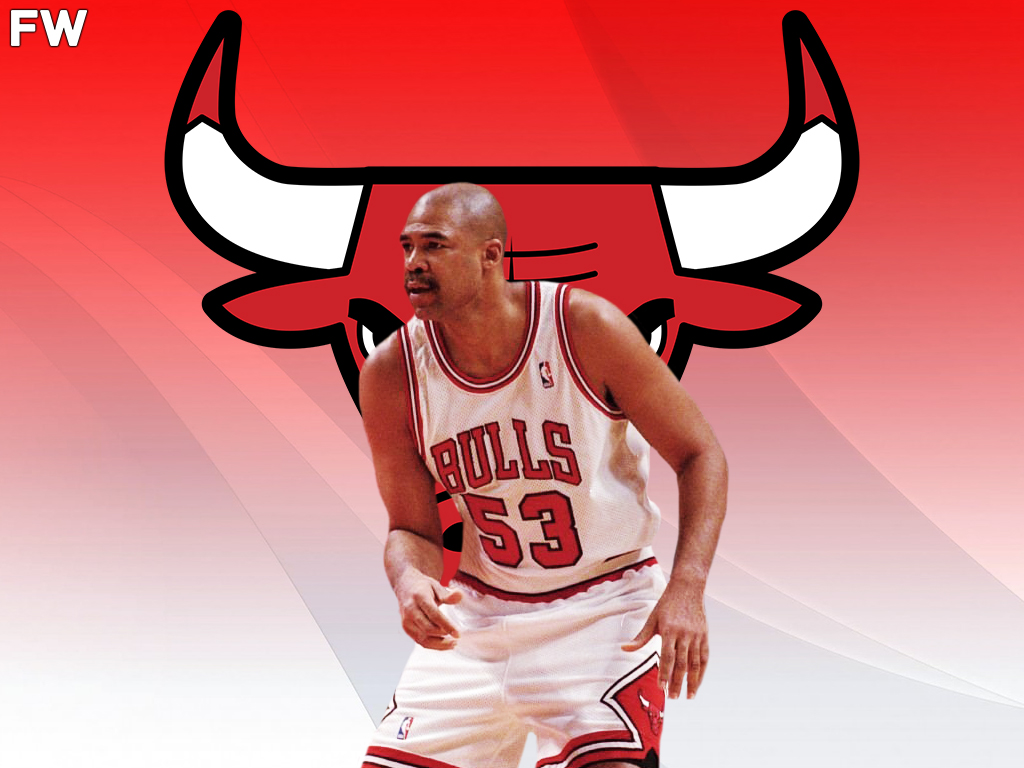
2022-23 Equivalent: $437,180
1995-96 Season Stats: 3.5 PPG, 1.4 RPG, 0.4 APG, 0.0 SPG, 0.3 BPG
1995-96 Playoff Stats: 1.8 PPG, 0.7 RPG, 0.0 APG, 0.0 SPG, 0.0 BPG
Before the Bulls, Edwards spent time with the Lakers, Pacers, Cavaliers, Suns, Pistons, Clippers, and Trail Blazers. He was a member of the championship teams in Detroit in 1989 and 1990. It was not until the 1996-96 season that he joined the Bulls for his final season in the league.
On his way out, he enjoyed a championship farewell. Edwards appeared in 28 games during the regular season. He averaged 3.5 points to go with 37.3% shooting. He averaged 9.8 minutes per game. In the playoffs, he made six appearances and averaged 4.7 minutes per game.
Jud Buechler – $300,000
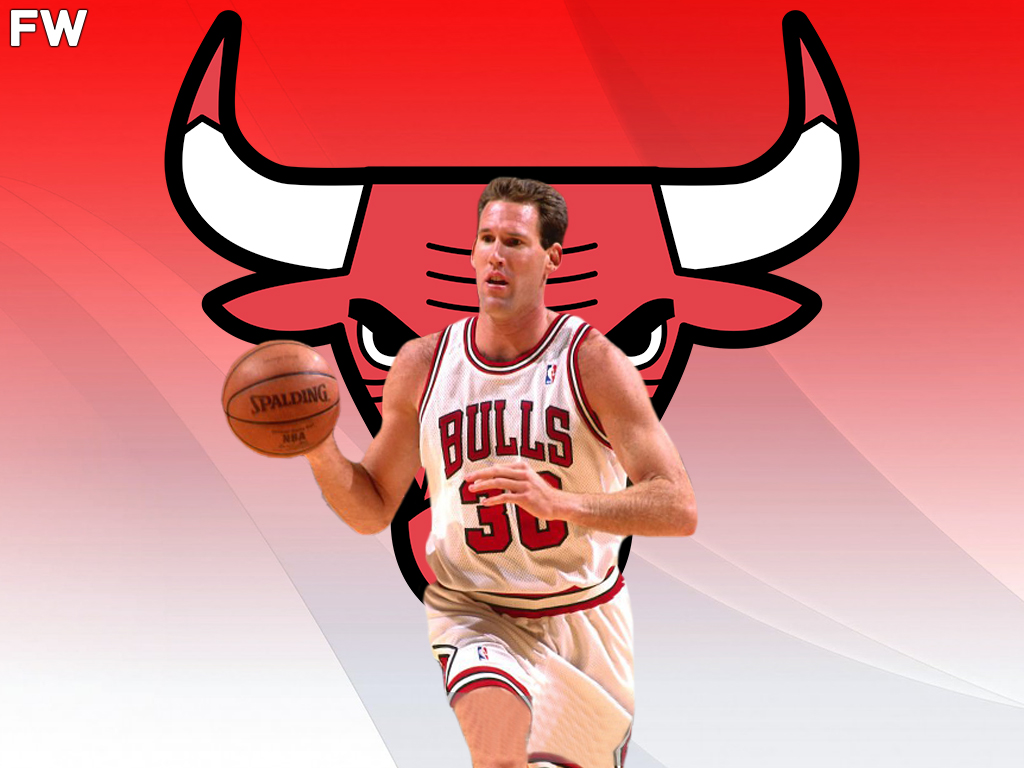
2022-23 Equivalent: $582,906
1995-96 Season Stats: 3.8 PPG, 1.5 RPG, 0.8 APG, 0.5 SPG, 0.1 BPG
1995-96 Playoff Stats: 2.7 PPG, 0.6 RPG, 0.4 APG, 0.4 SPG, 0.0 BPG
At 6 foot 6, Buechler was seen as a slender outside shooting threat. He was drafted in the second round, No. 38 overall, by the SuperSonics in 1990. He was then traded to the Nets, and he spent his first few seasons in the league with New Jersey, San Antonio, and Golden State. He joined the Bulls in 1994, where he got to enjoy a championship run with his former college teammate Steve Kerr.
For the season, Buechler averaged 10.0 minutes per game but shot a career-high 44.4% shooting from three-point range. His occasional three-point shots were considered clutch by the team. For the three-peat, Buechler made over 70 appearances in each season. In the playoffs for this season, Buechler shot his best at 47.4% in 7.5 minutes per game.
Larry Krystkowiak – $335,000
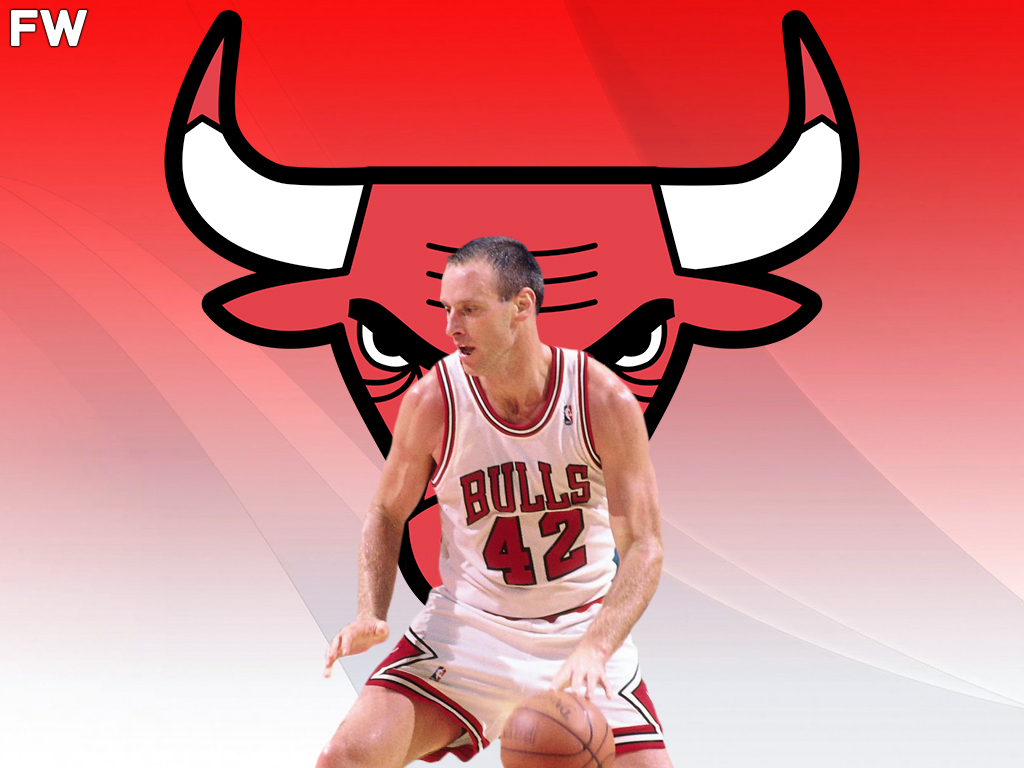
2022-23 Equivalent: $650,912
1995-96 Season Stats: 0.0 PPG, 0.0 RPG, 0.0 APG, 0.0 SPG, 0.0 BPG
1995-96 Playoff Stats: 0.0 PPG, 0.0 RPG, 0.0 APG, 0.0 SPG, 0.0 BPG
Krystkowiak was a second-round pick by the Bulls in 1986. The team used the No. 28 overall pick, but he was acquired by the Spurs. The first years of his career featured stops with the Spurs, Bucks, Jazz, and Magic. In 1994, Krystkowiak joined the Bulls and played 19 games.
With that said, Krystkowiak missed the entire 1995-96 season. His salary was still on record, but he did not contribute to the numbers. He returned for one season after this and played three games before retiring from the NBA for good.
Jason Caffey – $627,000
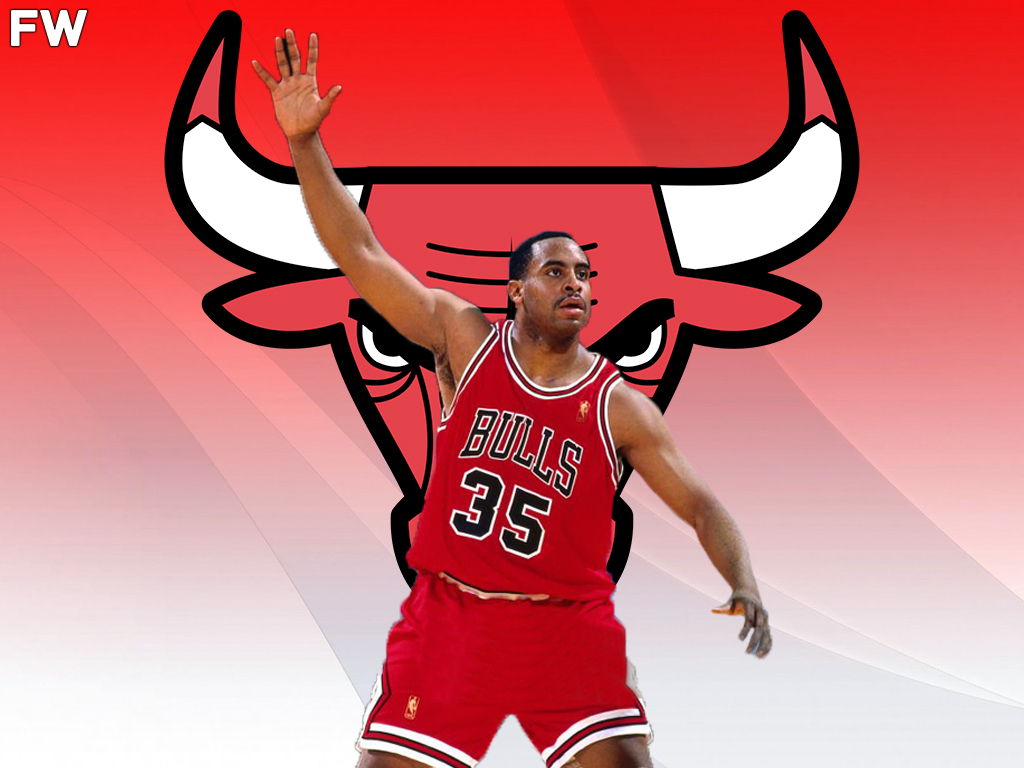
2022-23 Equivalent: $1,218,275
1995-96 Season Stats: 3.2 PPG, 1.9 RPG, 0.4 APG, 0.2 SPG, 0.1 BPG
1995-96 Playoff Stats: 0.0 PPG, 0.0 RPG, 0.0 APG, 0.0 SPG, 0.0 BPG
Caffey was the No. 20 overall pick in the 1995 NBA Draft. Talk about a great rookie experience. Caffey couldn’t have had a better start to his NBA career by playing with a record-setting franchise. While he did not display his skills very often that netted him the Gatorade’s Alabama Player of the Year Award, the 6-foot-8 power forward made a handful of appearances.
During the regular season, Caffey averaged 9.6 minutes and shot 43.8% from the field. In the playoffs, he made 17 appearances and started five games. He was one of 11 Bulls that made a start in the playoffs. His free throw percentage increased by 20%, while he also shot 45.5% in the 9.8 minutes of action.
Steve Kerr – $800,000
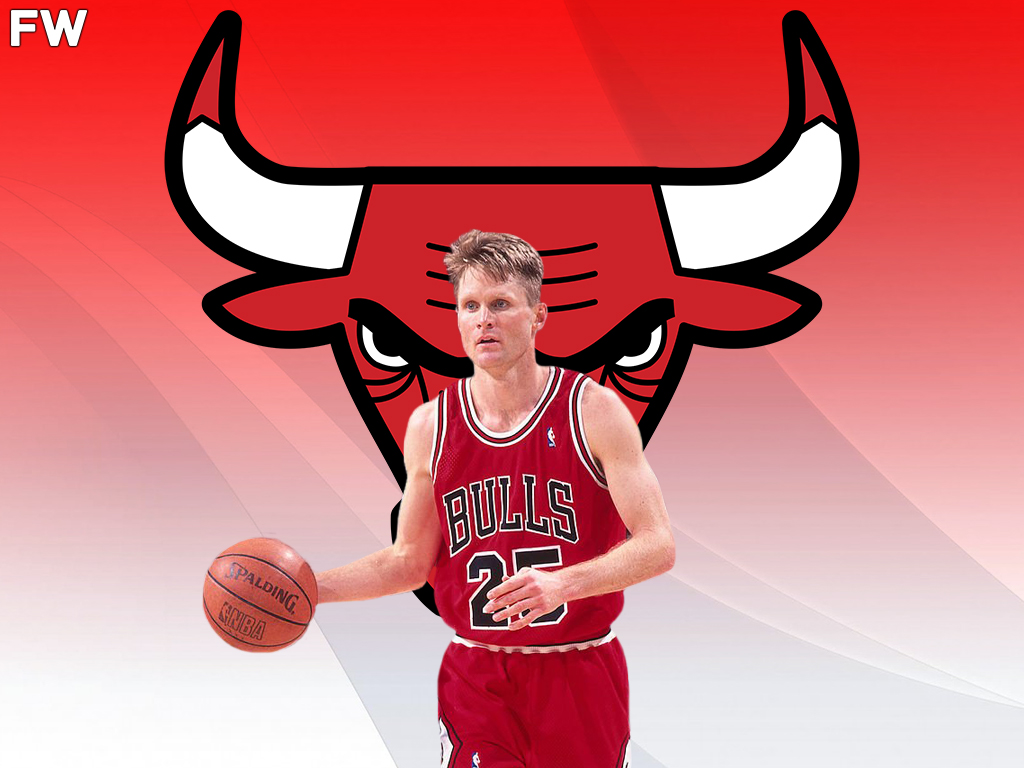
2022-23 Equivalent: $1,554,418
1995-96 Season Stats: 8.4 PPG, 1.3 RPG, 2.3 APG, 0.8 SPG, 0.0 BPG
1995-96 Playoff Stats: 6.8 PPG, 1.0 RPG, 1.7 APG, 0.8 SPG, 0.0 BPG
In 1993, the Bulls signed Kerr, and he was an instrumental piece to the team’s success in 1993-94 and 1994-95 while Jordan was predominantly out. With Jordan back in the fold, Kerr was back to coming off the bench and being used in a three-point shooting role. For the regular season, Kerr shot 50-40-90. His attempts did not qualify him for the 50-40-90 Club, but he averaged 50.6% from the field, 51.5% from three-point range, and 92.9% from the free throw line.
In the playoffs, Kerr played 19.8 minutes but saw his outside shooting drop. He shot 32.1% from three-point range but did enough in his role to help the Bulls win. Given his production, Kerr was on a valued contract. He could be seen closing out games, and that is not bad for a player making less than one million dollars.
Dickey Simpkins – $845,000
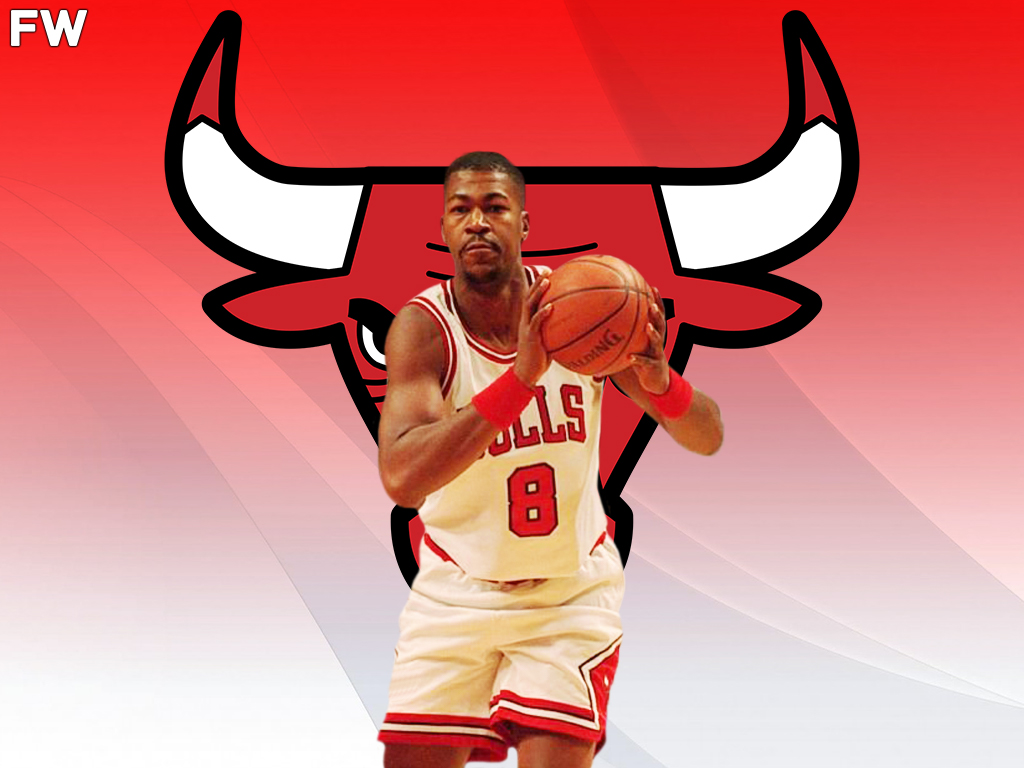
2022-23 Equivalent: $1,641,854
1995-96 Season Stats: 3.6 PPG, 2.6 RPG, 0.6 APG, 0.2 SPG, 0.1 BPG
1995-96 Playoff Stats: 0.0 PPG, 0.0 RPG, 0.0 APG, 0.0 SPG, 0.0 BPG
With the No. 21 overall pick, the Bulls selected Simpkins in the 1994 draft. He played with the Bulls for all of the three-peat years. He was behind Bill Wennington, Luc Longley, and Dennis Rodman on the depth chart. He scored just 513 points in his 167 games with the team. With that said, he was not active in the team’s playoff runs.
Ultimately, Simpkins was given a large salary for a limited role. He was not active on the playoff roster. While this team was not the most expensive in the league, this was one of the few bad contracts given the production in return. With that said, when he returned to the Bulls in 1999, he became a starter for the team.
Randy Brown – $900,000
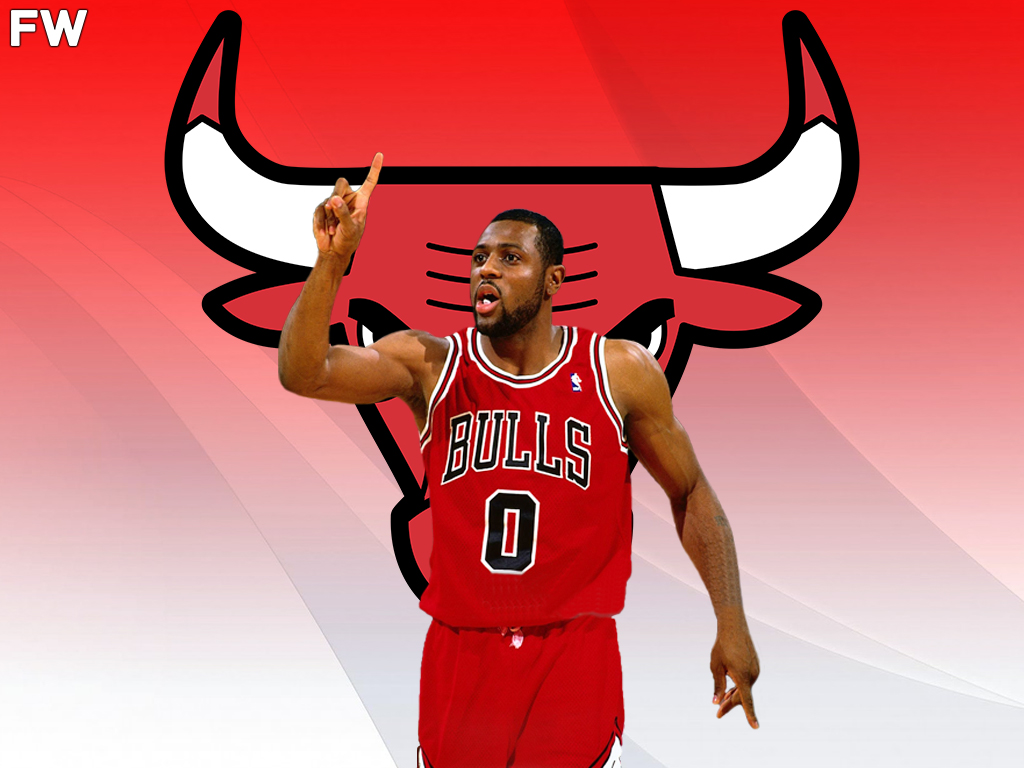
2022-23 Equivalent: $1,748,720
1995-96 Season Stats: 2.7 PPG, 1.0 RPG, 1.1 APG, 0.8 SPG, 0.2 BPG
1995-96 Playoff Stats: 2.8 PPG, 0.6 RPG, 0.4 APG, 0.3 SPG, 0.1 BPG
Brown played four seasons with the Kings before he came to the Bulls in 1995. He stayed with the Bulls up to 2000 and won three championships with the team. Brown was known for providing energy off of the bench. He was also a quick fan favorite and did not become a full-time starter until the likes of Jordan, Pippen, and Rodman were gone.
For this season, he averaged 9.9 minutes per game and made 68 appearances. He shot 40.6% from the field. In the playoffs, he played 7.0 minutes and made 57.1% of his limited shots. While Brown might have provided just a shot or two a night, he knew his role.
Bill Wennington – $1,000,000
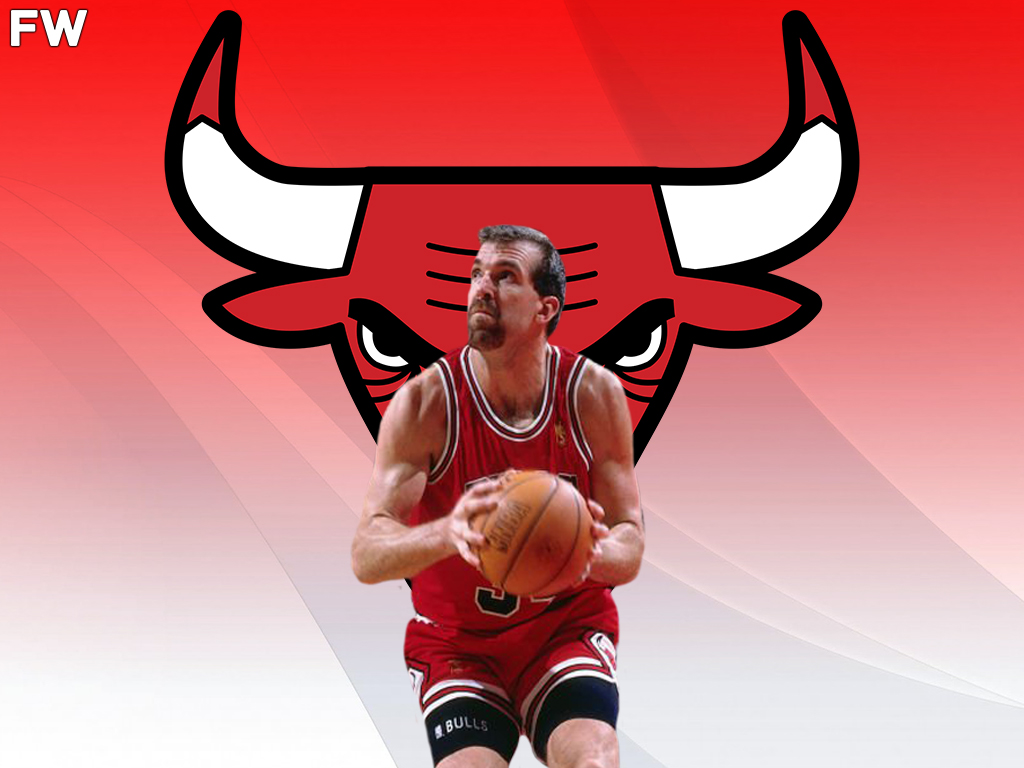
2022-23 Equivalent: $1,943,022
1995-96 Season Stats: 5.3 PPG, 2.5 RPG, 0.6 APG, 0.3 SPG, 0.2 BPG
1995-96 Playoff Stats: 3.0 PPG, 1.7 RPG, 0.5 APG, 0.2 SPG, 0.1 BPG
Wennington was a seasoned veteran in the league before he joined the Bulls. He spent time with the Mavericks, Kings, and Virtus Bologna internationally from 1985 to 1993. With the Bulls, he was the team’s backup big man. During the regular season, he made 20 starts and averaged 15.0 minutes per night. He shot about four shots a night and made nearly 50% of his shots.
In the playoffs, Wennington made 19 appearances and played 9.4 minutes per game. He shot 52.0% from the field while taking 2.8 shots a night. For a backup role, Wennington made less than half of the starter, so one could say this was exactly what the Bulls wanted for this contract.
Luc Longley – $2,300,000
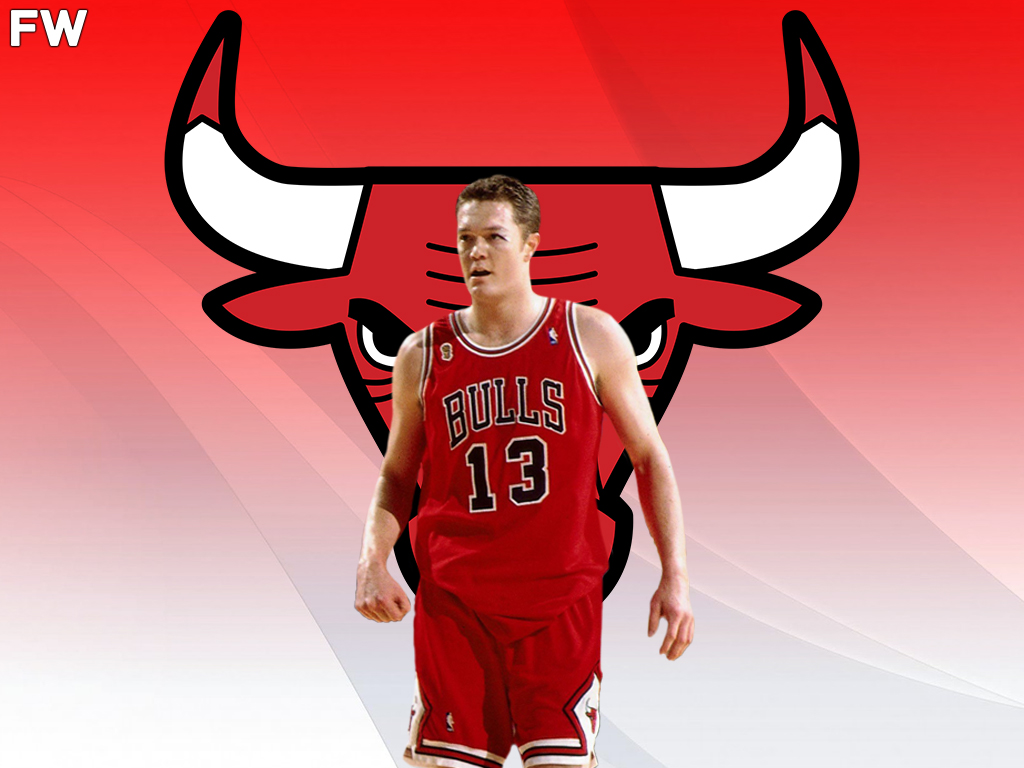
2022-23 Equivalent: $4,468,952
1995-96 Season Stats: 9.1 PPG, 5.1 RPG, 1.9 APG, 0.4 SPG, 1.4 BPG
1995-96 Playoff Stats: 8.3 PPG, 4.6 RPG, 1.6 APG, 0.4 SPG, 1.4 BPG
The 7 foot 2 center was traded to the Bulls late in the 1993-94 season in exchange for Stacey King. Longley became the team’s starting center and helped the Bulls win three straight championships. During the regular season, Longley made all 62 stars and played 26.5 minutes per game. He made about four shots a night and took about eight shots as well.
While Longley was not needed to be the team’s top rebounder, he was a solid rim protector that gave the team 1.4 blocks. In the playoffs, Longley started all 18 games and averaged 24.4 minutes per night. He shot 46.9% from the field and continued to average 1.4 blocks defensively.
Dennis Rodman – $2,500,000
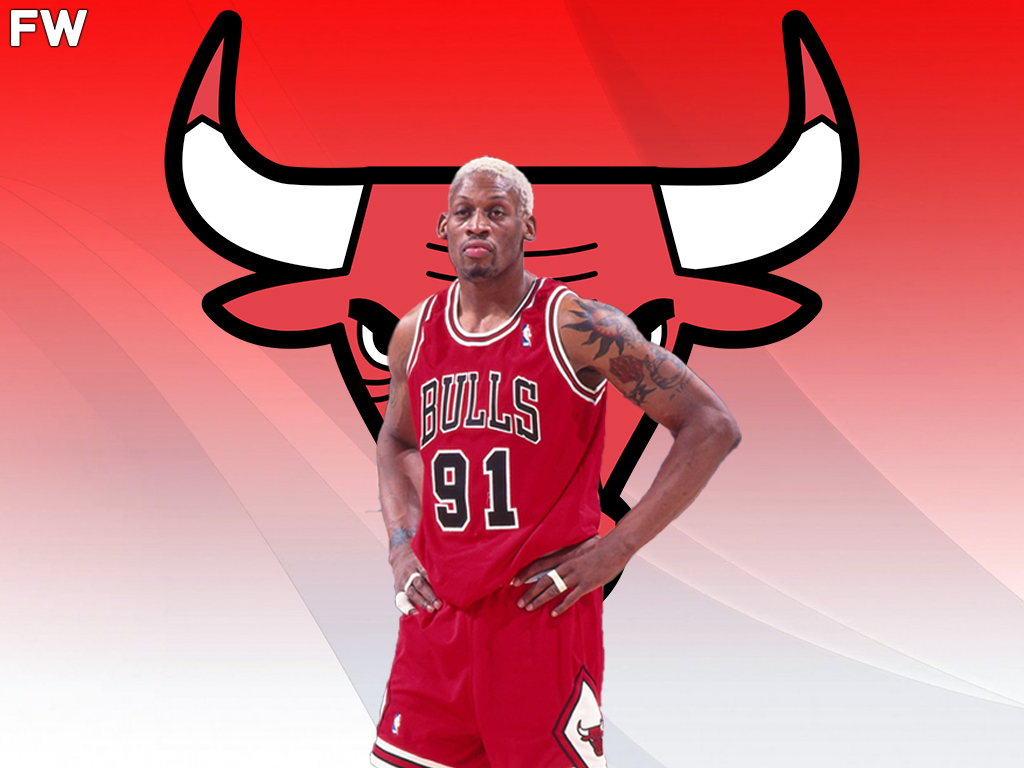
2022-23 Equivalent: $4,857,557
1995-96 Season Stats: 5.5 PPG, 14.9 RPG, 2.5 APG, 0.6 SPG, 0.4 BPG
1995-96 Playoff Stats: 7.5 PPG, 13.7 RPG, 2.1 APG, 0.8 SPG, 0.4 BPG
The trade for Rodman was considered a risk because the trade involved the even-keeled Will Perdue. Rodman was asked to replace the production of Horace Grant from years ago. The power forward quickly adapted to his new environment and led the league in rebounding. Jack Haley was considered a huge help in this success because he had a great rapport with Rodman.
Rodman grabbed 20 or more rebounds 11 times during the season. He also added a triple-double against the 76ers. However, controversy followed him when he headbutted referee Ted Bernhardt and was suspended for six games. He came back to help the Bulls in the playoffs, which included 13.7 rebounds per game. He caused SuperSonics big man Shawn Kemp fits in the NBA Finals and had two games of 11 offensive rebounds, which tied an NBA Finals record with Elvin Hayes.
Scottie Pippen – $2,925,000
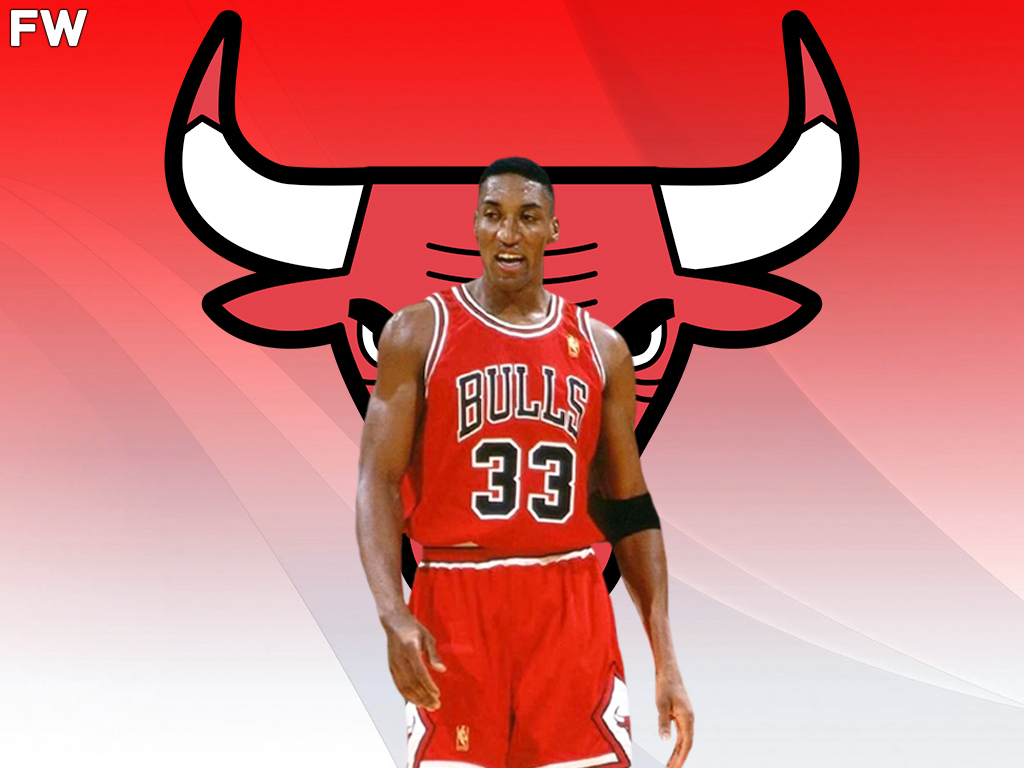
2022-23 Equivalent: $5,683,342
1995-96 Season Stats: 19.4 PPG, 6.4 RPG, 5.9 APG, 1.7 SPG, 0.7 BPG
1995-96 Playoff Stats: 16.9 PPG, 8.5 RPG, 5.9 APG, 2.6 SPG, 0.9 BPG
Pippen was the second piece of the first three-peat alongside Jordan. When Jordan left, Pippen was the leader of the team for two seasons. That included leading the league in steals in 1994-95. Pippen went back to be a complementary player when Jordan returned, and that made the Bulls a championship contender once again. Pippen had his best three-point shooting season of his career by shooting 37.4% from outside and averaging a line of 19.4 points, 6.4 rebounds, and 5.9 assists.
At the end of the year, Pippen was named All-NBA First Team and made the All-Defensive First Team. In the playoffs, Pippen’s rebounding was second-best on the team, and he averaged 2.6 steals per game. Offensively and defensively, he was the best two-way player in the playoffs. That translated him into winning another title.
Ron Harper – $3,120,000
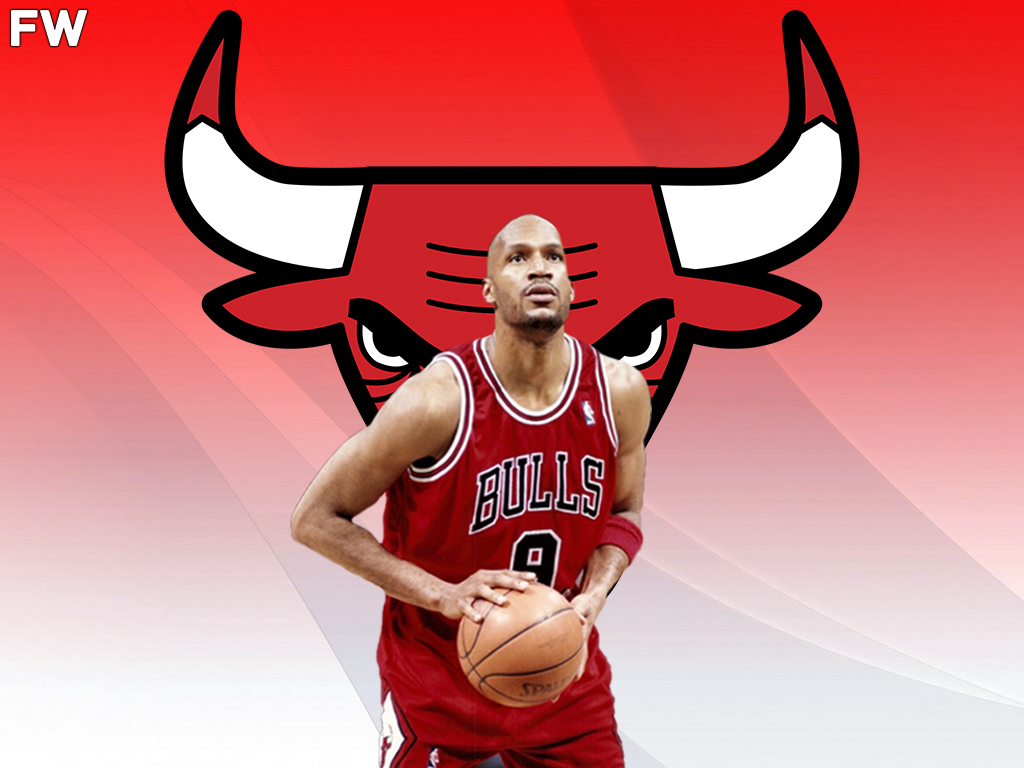
2022-23 Equivalent: $6,062,231
1995-96 Season Stats: 7.4 PPG, 2.7 RPG, 2.6 APG, 1.3 SPG, 0.4 BPG
1995-96 Playoff Stats: 8.8 PPG, 3.7 RPG, 2.5 APG, 1.4 SPG, 0.4 BPG
Harper ended his NBA career as a five-time champion, but his first title came with the Bulls during this season. In the 1994 offseason, Harper signed with the Bulls and was the starting point guard. He had a reputation as a perimeter defender and ball handler and could make a mid-range shot. After serving as the team’s primary point guard, he gained a valuable role in the backcourt when Jordan returned.
Harper made 80 starts and played 23.6 minutes per game. He shot 46.7% from the field and shot 70.5% from the free-throw line. While Harper was not an All-Defensive player, he gave the team a solid perimeter player. In the playoffs, he made 16 starts in 18 games, playing 27.4 minutes and shooting 42.5% from the field.
Toni Kukoc – $3,560,000
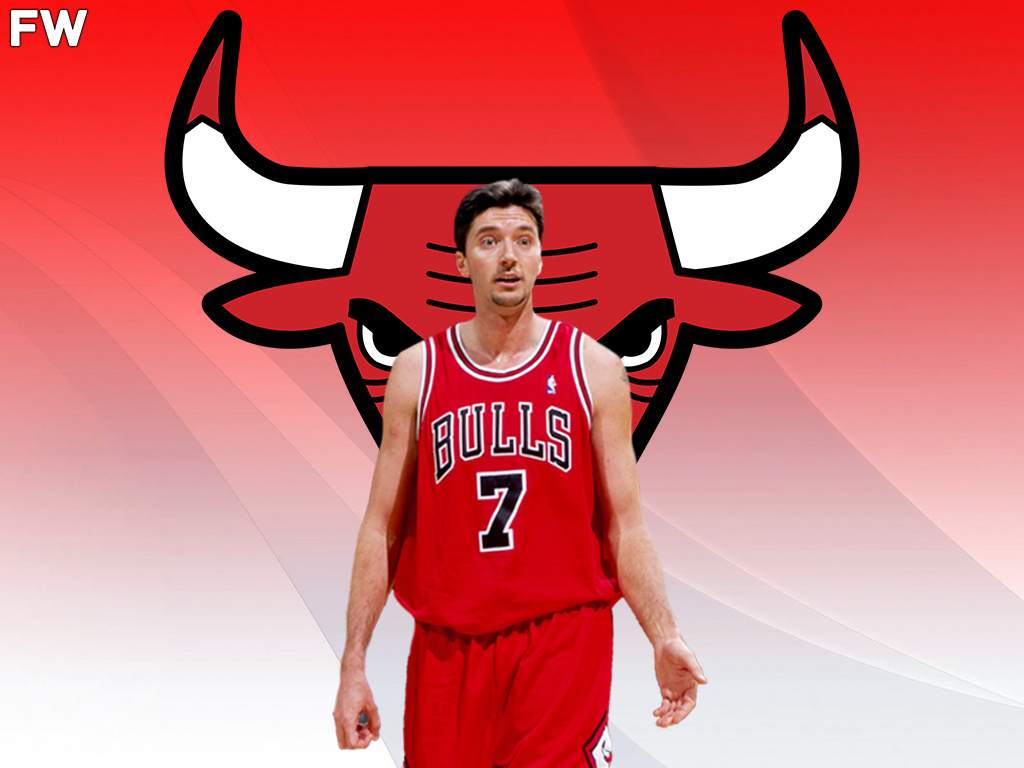
2022-23 Equivalent: $6,917,161
1995-96 Season Stats: 13.1 PPG, 4.0 RPG, 3.5 APG, 0.8 SPG, 0.3 BPG
1995-96 Playoff Stats: 10.8 PPG, 4.2 RPG, 3.9 APG, 0.9 SPG, 0.3 BPG
Kukoc finished the 1994-95 season as a starter and was second on the team in scoring, rebounds, and assists behind Pippen. With Jordan returning to the team, Kukoc was the third option offensively and moved to a sixth man. With 13.1 points per game, he was awarded the Sixth Man of the Year Award. He remains the last player to win the Sixth Man of the Year Award and an NBA championship in the same season.
In the playoffs, Kukoc made five starts in 15 games. He was horrid from outside, shooting just over 19% from three-point range, and was just over 39% from the field. However, his free-throw shooting was a career-high in the playoffs at 83.8%. In the end, Kukoc brought versatility to the floor and was an above-average passer at 6-foot-10. It’s hard to believe he made just under $300,000 less than Michael Jordan.
Michael Jordan – $3,850,000
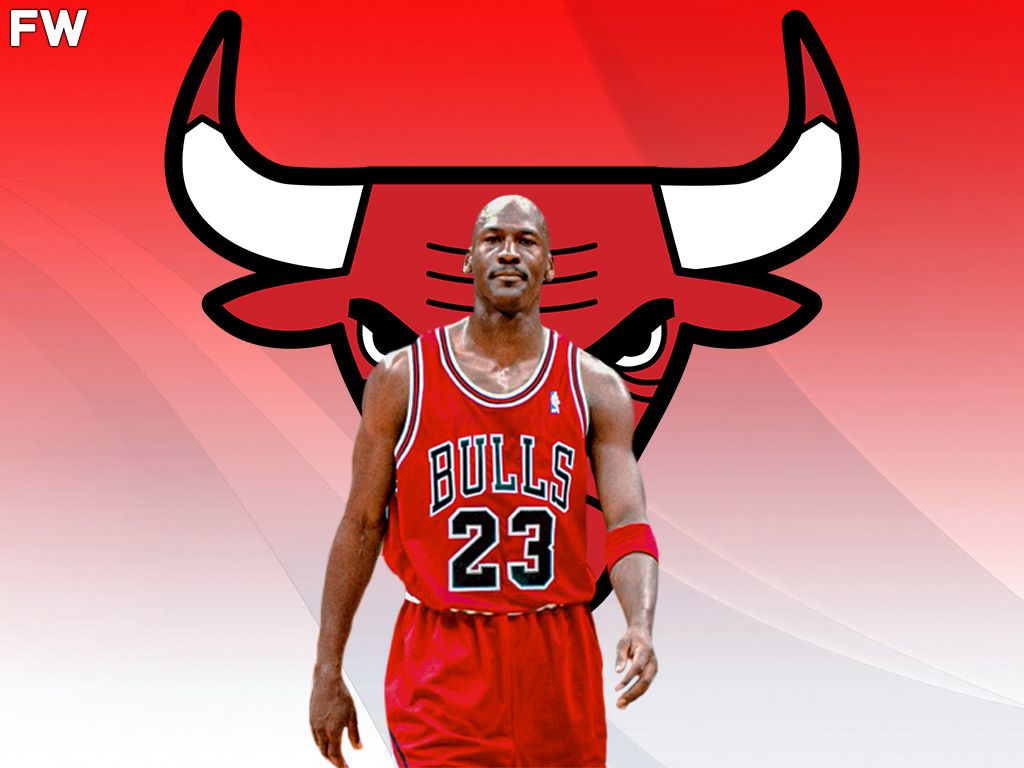
2022-23 Equivalent: $7,480,638
1995-96 Season Stats: 30.4 PPG, 6.6 RPG, 4.3 APG, 2.2 SPG, 0.5 BPG
1995-96 Playoff Stats: 30.7 PPG, 4.9 RPG, 4.1 APG, 1.8 SPG, 0.3 BPG
Jordan’s contract was so team-friendly that it would have been worth just over $7 million in today’s NBA. For context, Jordan was mainly out of the league for two seasons. When a player is gone for that long, they don’t come back with a full vengeance like this. Jordan came back to the league and led the league in scoring, was named All-Defensive First Team, made All-NBA First Team, won the All-Star Game MVP, and was named MVP.
Watching Klay Thompson come back from an injury to win a title last year was a spectacle, but it wasn’t like this. Jordan didn’t just average over 30 points in the regular season but also in the playoffs. That helped him eventually put away the SuperSonics with Gary Payton guarding him to win the Finals MVP Award. It was the first championship he won since his father passed away. This was never about the money when the cameras showed him crying in the locker room after the Bulls won the title.
One Of The Most Equally Paid Championship Teams Ever
Total Salary For The 1995-96 Bulls: $23,512,000
Four teams had a payroll of over $30 million for the season. That included the Los Angeles Lakers ($30.0 million), Phoenix Suns ($36.5 million), Orlando Magic ($36.5 million), and the New York Knicks ($43.3 million). Let’s examine these teams for a moment. The Lakers finished the season 53-29 but were eliminated in the first round of the playoffs. The Suns were 41-41 and also defeated in the first round as the seven seed.
How about the two Eastern Conference teams? The Knicks won 47 games and made the second round of the playoffs. The team was defeated in five games by the Bulls. The Conference Finals featured a matchup with the two-seed Magic, who had eliminated the Bulls in the 1995 playoffs to make the NBA Finals. Instead, the Bulls swept the high-payrolled Magic to reverse the roles. Look past the wins and championships. This team was special on so many more levels.

